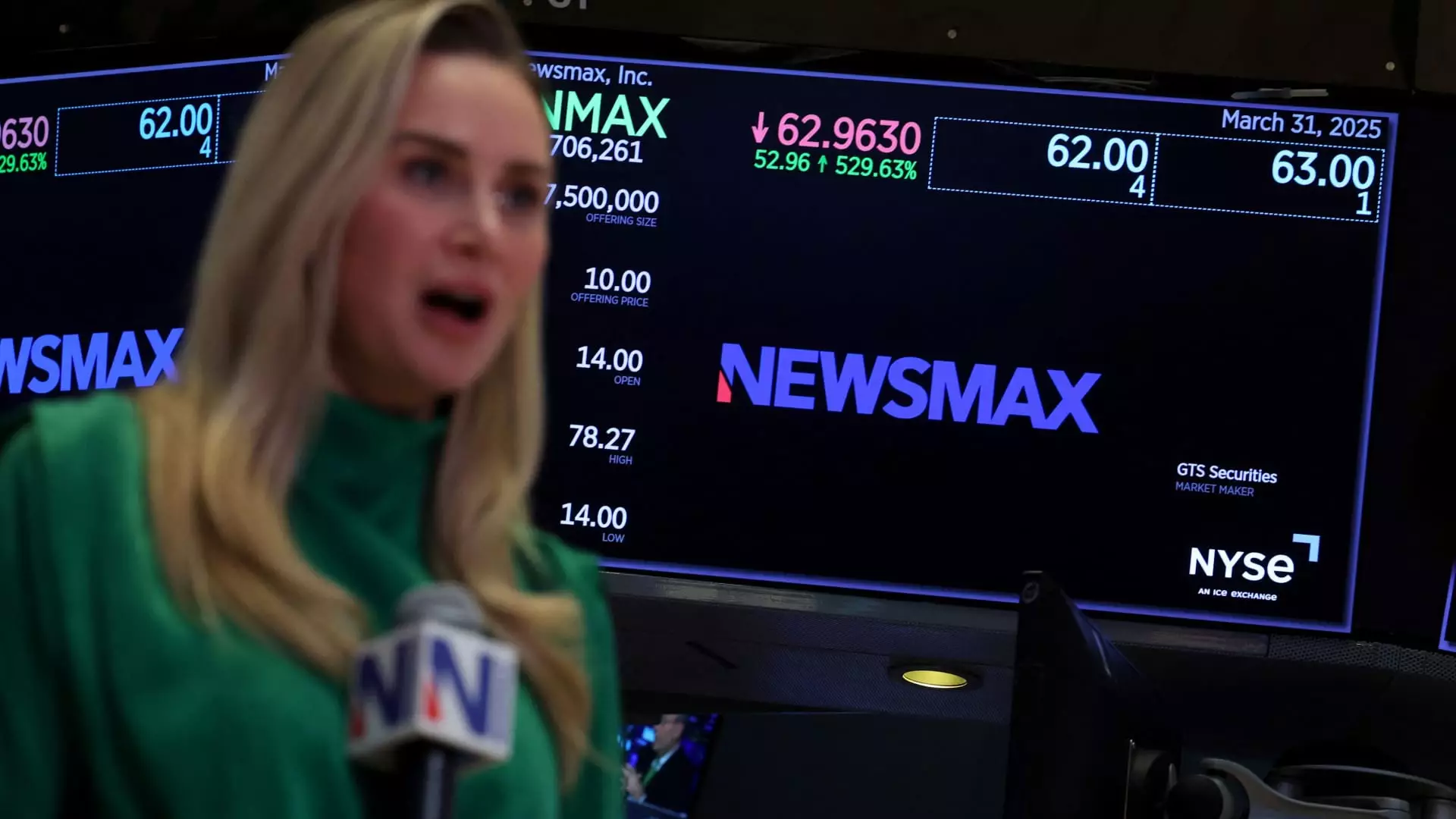On a seemingly routine Monday morning, Newsmax made headlines by securing a staggering $75 million through a unique funding route. Rather than a traditional Initial Public Offering (IPO), the conservative media outlet opted for a Regulation A offering—an intriguing choice born out of the 2015 JOBS Act. This regulatory framework was designed to streamline the fundraising process for smaller entities, ostensibly lifting burdens related to SEC filings and compliance. However, one must ponder whether this method, designed for small startups, should be embracing a media giant that implicitly aims to influence public opinion.
The Mechanics of Capital Raising
By issuing 7.5 million shares at a price point of $10 each, Newsmax was able to appeal directly to retail investors—those individual players in the stock market with limited resources and influence compared to institutional investors. The engagement of around 30,000 retail investors suggests that there was a clear ideological alignment between them and the platform’s conservative ethos. Yet one cannot ignore the implications of allowing such a large media outlet to exploit Regulation A, initially intended to populate the marketplace with smaller entities. It raises eyebrows: is this regulation a vehicle for capitalist intentions or merely an avenue for media manipulation?
Volume and Volatility: The Stock Surge Explained
Immediately post-offering, Newsmax’s stock experienced dizzying volatility, surging from an opening price of $14 to an astronomical close of $233 within days. This phenomenon prompts an exploration of market mechanics. Much of this price explosion can be attributed to the “float,” the fraction of available shares. With under 6% of a total of 128 million shares floating in the market, the opportunity for price volatility was ripe. Here, the market sentiment plays an instrumental role. The allure of a meme stock—a term resonating with today’s retail traders—creates an intoxicating cycle of buying, driven largely by social media dynamics and an ever-present desire to oppose established narratives.
The Rise of Momentum Trading
What distinguishes this situation from more mundane stock behaviors is the ferocity of momentum trading. Once the initial surge drew attention, momentum traders, fueled by excitement and speculation, took hold. The very essence of a meme stock transforms into a self-perpetuating cycle, driving initial investors’ profits while beckoning new traders to join the fray. While this may present short-term gains, the inevitable downside—a price correction—loomed like a specter on the horizon, illustrating the precarious balance of speculative trading in media snippets.
Ideological Underpinnings in the Stock Market
At the core, the Newsmax offering reflects the intertwined nature of politics and business. Far from merely a financial endeavor, it showcases how ideological affiliations play a pivotal role in financial strategies. The insatiable following of alternative media reflects a societal division — one that, instead of bridging gaps, entices further polarization. While financial assertiveness often blurs the lines of ethical considerations, the story of Newsmax’s rise serves as a reminder of the complex interactions between commerce and ideology in today’s fast-paced market landscape.
In a world where financial and ideological narratives entwine, one must ponder the significance of media companies manipulating the market landscape.


Leave a Reply